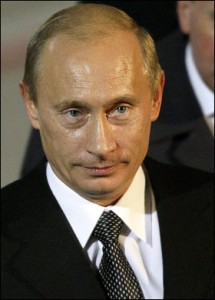New Zeal Blog
This excellent piece is written by Lauren Goodrich of Stratfor. Very few have such a good grasp on the way the Kremlin thinks and operates, and the growing threat it represents. This is one of those articles that you read and then email on to friends.
---------------------------------------------------------
Russia has entered election season, with parliamentary elections in December and presidential elections in March 2012. Typically, this is not an issue of concern, as most Russian elections have been designed to usher a chosen candidate and political party into office since 2000. Interesting shifts are under way this election season, however. While on the surface they may resemble political squabbles and instability, they actually represent the next step in the Russian leadership’s consolidation of the state.
In the past decade, one person has consolidated and run Russia’s political system: former president and current Prime Minister Vladimir Putin. Putin’s ascension to the leadership of the Kremlin marked the start of the reconsolidation of the Russian state after the decade of chaos that followed the fall of the Soviet Union. Under Putin’s presidential predecessor, Boris Yeltsin, Russia’s strategic economic assets were pillaged, the core strength of the country — the KGB, now known as the Federal Security Service (FSB), and the military — fell into decay, and the political system was in disarray. Though Russia was considered a democracy and a new friend to the West, this was only because Russia had no other option — it was a broken country.
Perceptions of Putin
Vladimir Putin, Prime Minister of Russia
Putin’s goal was to fix the country, which meant restoring state control (politically, socially and economically), strengthening the FSB and military and re-establishing Russia’s influence and international reputation — especially in the former Soviet sphere of influence. To do so, Putin had to carry Russia through a complex evolution that involved shifting the country from accommodating to aggressive at specific moments. This led to a shift in global perceptions of Putin, with many beginning to see the former KGB agent as a hard-nosed autocrat set upon rekindling hostilities and renewing militarization.
This perception of Putin is not quite correct. While an autocrat and KGB agent (we use the present tense, as Putin has said that no one is a former KGB or FSB agent), he hails from St. Petersburg, Russia’s most pro-Western city, and during his Soviet-era KGB service he was tasked with stealing Western technology. Putin fully understands the strength of the West and what Western expertise is needed to keep Russia relatively modern and strong. At the same time, his time with the KGB convinced him that Russia can never truly be integrated into the West and that it can be strong only with a consolidated government, economy and security service and a single, autocratic leader.

No hay comentarios:
Publicar un comentario